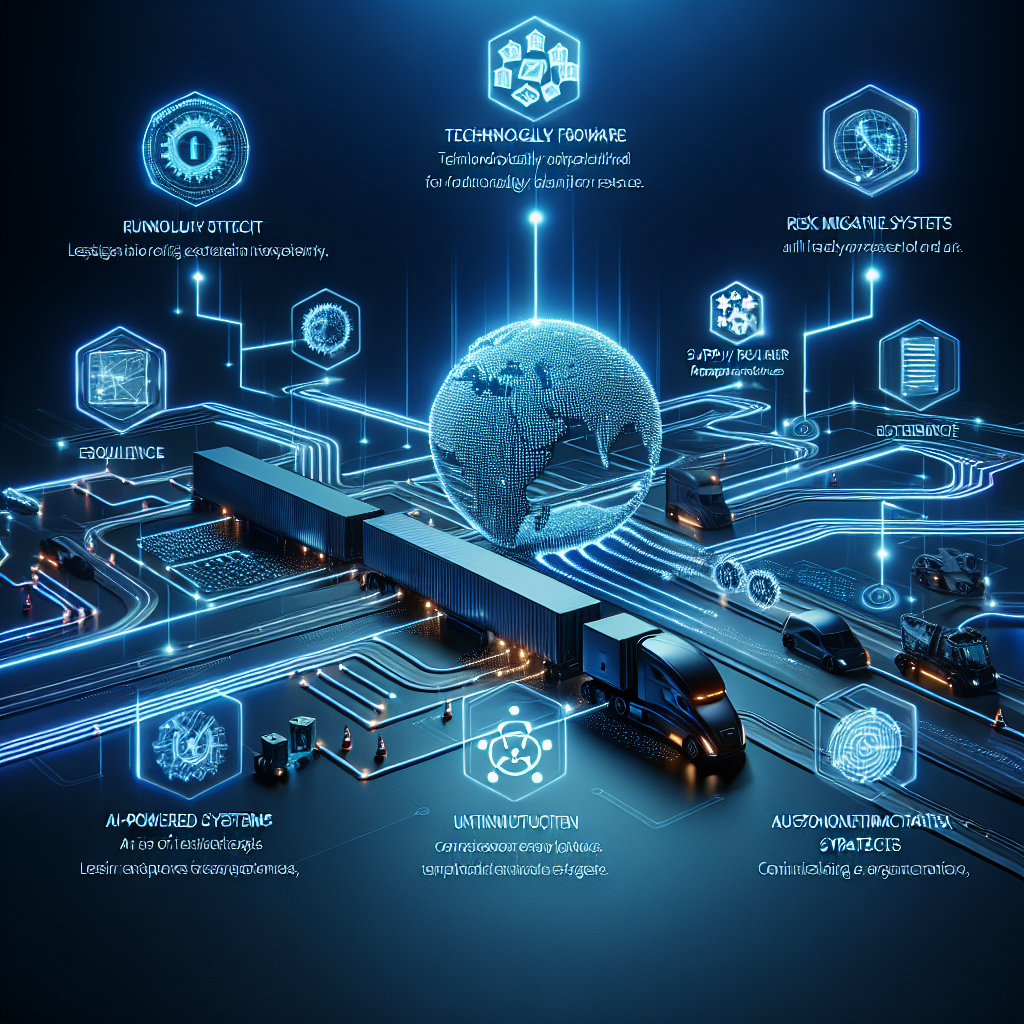In today’s fast-paced and interconnected world, supply chain resilience has become a critical factor for the success of businesses. With the increasing frequency of disruptions such as natural disasters, geopolitical conflicts, and now the global pandemic, companies are recognizing the importance of having a robust and agile supply chain that can withstand unexpected shocks.
One of the key technologies that is revolutionizing the way companies manage their supply chains is artificial intelligence (AI). AI-powered supply chain resilience is helping organizations mitigate risks in logistics by providing real-time visibility, predictive analytics, and automation capabilities that enable faster decision-making and response to disruptions.
AI-powered supply chain resilience is transforming the way companies manage their logistics operations by leveraging advanced algorithms and machine learning models to optimize routes, predict demand, and identify potential risks before they escalate. By harnessing the power of AI, companies can proactively address supply chain disruptions and minimize their impact on operations.
Real-time visibility is a crucial aspect of supply chain resilience, as it allows companies to track the movement of goods and monitor the performance of suppliers in real-time. AI-powered solutions can collect and analyze data from various sources such as sensors, GPS devices, and IoT devices to provide a comprehensive view of the supply chain network. This real-time visibility enables companies to identify bottlenecks, delays, and other issues before they become major problems, allowing them to take corrective actions quickly.
Predictive analytics is another key capability of AI-powered supply chain resilience. By analyzing historical data and external factors such as weather patterns, economic trends, and geopolitical events, AI algorithms can predict potential disruptions and recommend proactive measures to mitigate risks. For example, AI-powered demand forecasting can help companies anticipate changes in customer demand and adjust their inventory levels accordingly, reducing the risk of stockouts or excess inventory.
Automation is also a critical component of AI-powered supply chain resilience. By automating routine tasks such as order processing, inventory management, and warehouse operations, companies can free up valuable resources and streamline their logistics processes. AI-powered automation can also improve the accuracy and efficiency of supply chain operations, reducing the risk of human errors and delays.
In addition to real-time visibility, predictive analytics, and automation, AI-powered supply chain resilience also enables companies to collaborate more effectively with their suppliers, customers, and other stakeholders. By sharing data and insights in real-time, companies can build stronger partnerships and create a more agile and responsive supply chain network.
Despite the numerous benefits of AI-powered supply chain resilience, there are also challenges and limitations that companies need to be aware of. One of the key challenges is the lack of data quality and availability, as AI algorithms require large amounts of high-quality data to deliver accurate and reliable results. Companies need to invest in data collection, cleansing, and integration processes to ensure that their AI-powered solutions have access to the right data sources.
Another challenge is the complexity of AI algorithms and models, which require specialized skills and expertise to develop and maintain. Companies need to invest in training and development programs to build a team of data scientists, AI engineers, and supply chain experts who can leverage AI technologies effectively.
Despite these challenges, the benefits of AI-powered supply chain resilience far outweigh the costs and complexities. By harnessing the power of AI, companies can achieve greater efficiency, agility, and resilience in their logistics operations, enabling them to navigate through disruptions and uncertainties with confidence.
FAQs:
Q: How can AI-powered supply chain resilience help companies mitigate risks in logistics?
A: AI-powered supply chain resilience can help companies mitigate risks in logistics by providing real-time visibility, predictive analytics, and automation capabilities that enable faster decision-making and response to disruptions. By leveraging advanced algorithms and machine learning models, companies can optimize routes, predict demand, and identify potential risks before they escalate.
Q: What are the key capabilities of AI-powered supply chain resilience?
A: The key capabilities of AI-powered supply chain resilience include real-time visibility, predictive analytics, and automation. Real-time visibility allows companies to track the movement of goods and monitor the performance of suppliers in real-time. Predictive analytics helps companies anticipate disruptions and recommend proactive measures to mitigate risks. Automation streamlines logistics processes and improves efficiency.
Q: What are the challenges of implementing AI-powered supply chain resilience?
A: Some of the challenges of implementing AI-powered supply chain resilience include data quality and availability, complexity of AI algorithms and models, and the need for specialized skills and expertise. Companies need to invest in data collection, cleansing, and integration processes, as well as training and development programs to build a team of experts who can leverage AI technologies effectively.

